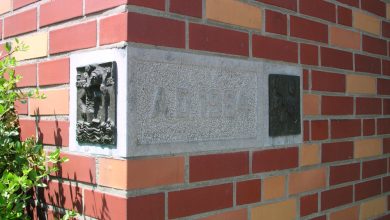What Are the Advantages and Disadvantages of Concrete Masonry Unit
The advantages of concrete masonry units (CMU) include being more visually appealing than concrete block walls, providing a wide variety of infill materials for better appearance, being cost-effective and easily accessible in the market.
CMUs are also non-combustible, durable against rot, pests, weather, and natural disasters, and have a longer lifespan.
They increase the thermal mass of a building, improve resale value, and are resistant to insects.
Furthermore, CMUs cost less in terms of labor and materials compared to wood.
On the other hand, the disadvantages of CMUs include limitations to indoor applications due to the corrosive nature of concrete and weight.
They are not suitable for walls in contact with the ground or in basements.
CMUs have limited architectural possibilities, which restrict the creation of complex shapes and compromise aesthetic individuality.
Additionally, they are relatively expensive compared to bricks, can turn black due to chemical reactions with moisture and carbon dioxide, and require specialized equipment for handling and installation.
CMUs are not recyclable, lack aesthetic character, and can cause damage to a building due to their heavy weight.
They are also not ideal for areas with high humidity and require constant maintenance for a smooth finish resistant to water penetration.
Exposure to moisture can cause rust on reinforcement bars, leading to the premature deterioration of the wall structure.
Did You Know?
1. One little known advantage of concrete masonry units (CMUs) is their excellent fire resistance. Due to the inherent properties of concrete, CMUs can withstand high temperatures for longer durations compared to other building materials, making them a safer choice for fire-prone areas.
2. On the downside, CMUs have a tendency to absorb and retain moisture if not properly sealed or insulated. This can lead to moisture-related issues such as mold growth, efflorescence, and structural deterioration if not addressed.
3. Interestingly, CMUs can also be a sustainable choice in construction. Many manufacturers now produce CMUs with a high percentage of recycled content, reducing the demand for new raw materials and minimizing environmental impact.
4. One lesser-known disadvantage of CMUs is their limited design versatility compared to some other building materials. While there are various sizes and shapes available, the finished appearance of CMU structures tends to have a more utilitarian or industrial aesthetic, which may not suit certain architectural styles.
5. CMUs can provide excellent acoustic insulation, reducing noise transmission between spaces. The density and solidity of concrete masonry units help absorb sound waves, making them a favorable choice for areas where noise control is important, such as recording studios or theaters.
Advantages Of Concrete Masonry Unit (CMU)
Concrete Masonry Units (CMU) have several advantages that make them a popular choice for construction projects.
One of the main advantages of CMU is its attractive appearance. CMU walls are more visually appealing compared to ordinary concrete blocks, making them suitable for appearance-sensitive applications.
Furthermore, CMUs offer a wide range of infill materials, allowing for better customization and creating a more visually appealing finish.
In addition to their aesthetic benefits, CMUs are also cost-effective. They are readily available in the market and are relatively cheaper compared to other building materials such as wood.
Moreover, CMUs are non-combustible, enhancing fire protection in buildings. They are highly resistant to rotting, pests, weather, and natural disasters, ensuring long-lasting durability and structural integrity.
The use of CMUs also increases the thermal mass of a building, creating a more energy-efficient and comfortable indoor environment.
Another advantage of CMUs is their ability to withstand large compressive weight loads. This makes them suitable for construction projects that require strong and sturdy structures.
Additionally, CMUs have longer lifespans compared to other building types, which can improve the resale value of properties.
- Attractive appearance
- Wide range of infill materials
- Cost-effective
- Non-combustible and resistant to rotting, pests, weather, and natural disasters
- Increased thermal mass for energy efficiency
- Ability to withstand large compressive weight loads
- Longer lifespans for improved resale value.
“CMUs offer several advantages for construction projects, including their attractive appearance, wide range of infill materials, cost-effectiveness, resistance to fire and other damaging factors, energy-efficient properties, ability to bear heavy loads, and long lifespan.”
Disadvantages Of Concrete Masonry Unit (CMU)
While CMUs (concrete masonry units) offer numerous advantages, they also come with a few disadvantages:
-
Limited to indoor applications: CMUs are restricted to indoor use due to the corrosive nature of concrete and their weight. This limits their usage in areas that may be exposed to moisture or require contact with the ground, such as basements or outdoor walls.
-
Limited architectural possibilities: Unlike bricks or natural stones, CMUs can only create simple arches and flat surfaces. This compromises the aesthetic individuality of the structure and restricts design options available to architects and builders.
-
Relatively expensive: Compared to other building materials, CMUs can be relatively costly. The raw concrete used in CMUs can turn black due to chemical reactions with moisture and carbon dioxide, further affecting the overall aesthetic appeal of the structure.
-
Challenging installation: CMUs require special cranes for handling, which adds to the cost and complexity of the construction process.
-
Non-recyclable: CMUs are not recyclable, making it difficult to reduce their usage and environmental impact.
In summary, CMUs have limitations in terms of indoor use, architectural possibilities, cost, installation, and environmental impact.
Concrete Masonry Unit Sizes
Concrete Masonry Units (CMU) are available in different sizes to meet construction requirements in various countries. In the United States, standard CMU blocks are 16 inches long and 8 inches wide, with actual dimensions being 3/8 inch smaller to accommodate mortar joints. In Ireland and the United Kingdom, CMU blocks are usually 440 mm x 215 mm x 100 mm in size, excluding mortar joints. In Australia, New Zealand, and Canada, the standard size is typically 390 mm x 190 mm x 190 mm, excluding mortar joints.
Masonry Construction Techniques: Brick, Stone, And Concrete Block
Masonry is a construction technique that involves building structures using single units bound together with mortar. There are three main types of masonry construction: brick masonry, stone masonry, and concrete block masonry.
- Brick masonry offers several advantages, including:
- Not requiring highly skilled labor
- Lightweight and easy to handle, making it cost-effective
- Cheaper than stone and concrete blocks
- Allows for easy creation of openings for doors and windows
However, brick masonry has some limitations:
* Lower resistance against tension and torsion loads compared to other types
* May require plasterwork for a finished appearance
- Stone masonry, on the other hand, is known for its:
- Durability, strength, and weather resistance
- Wide variety of colors, sizes, and textures, providing an aesthetically pleasing appearance
- Little maintenance and repair required over time
However, stone masonry also has some drawbacks:
* Thick and heavy walls, which may reduce floor space
* Lower flexural strength, tensile strength, and seismic resistance
* Time-consuming process that requires skilled workers and is difficult to alter, repair, or relocate
- Concrete block masonry has its advantages and disadvantages as well:
- Resistant to weather, pests, mold, and fire, making it a durable and safe option
- Availability in various sizes, finishes, and colors to meet project requirements
- Good insulating properties, contributing to energy efficiency
However, concrete block masonry also has its limitations:
* Heavy and difficult to handle, requiring more manpower during construction
* Increases the amount of steel required in reinforced structures
* Potential plumbing issues
* Expensive repairs, especially when cutting open blocks, and effective drainage systems are necessary to prevent water damage
Pros And Cons Of Concrete Block Masonry
Concrete block masonry has several advantages, such as:
- Resistance to weather, pests, mold, and fire.
- Wide range of sizes, finishes, and colors.
- Can be manufactured to meet specific project requirements.
- Good insulating properties, contributing to energy efficiency.
However, there are some disadvantages to consider:
- Heavy weight of blocks, making handling difficult.
- Require more manpower during construction.
- Increase the amount of steel required in reinforced structures.
- Plumbing issues may be harder to solve in concrete block structures.
- Repairs can be expensive, especially when cutting open blocks.
- It is crucial to have an effective drainage system to prevent water damage.
“An effective drainage system is necessary to prevent water damage.”
Check this out:
Frequently Asked Questions
What are the disadvantages of concrete masonry units?
Despite the numerous advantages offered by concrete masonry units, there are several disadvantages to keep in mind. Firstly, the weight of these units can pose challenges during construction, as they require specialized equipment and careful handling. Additionally, the lack of insulation properties in concrete masonry units can result in lower energy efficiency and increased heating or cooling costs. Lastly, their installation requires skilled labor, which can increase construction costs and limit the availability of qualified workers.
What are the advantages of concrete masonry units?
Concrete masonry units, also known as CMUs, offer a range of advantages to builders and property owners. One key advantage is the competitive pricing, with masonry and precast materials often being more cost-effective than other popular building options. Moreover, CMUs require low maintenance, saving both time and money in the long run. These versatile units also contribute to energy efficiency, providing excellent insulation and reducing heating and cooling costs. Additionally, CMUs are renowned for their durability and longevity, ensuring a lasting investment. Furthermore, concrete masonry units are resource-efficient, as they can be made from locally available materials and produced with minimal waste, making them an environmentally conscious choice.
What are the advantages and disadvantages of concrete block masonry over brick masonry?
Concrete block masonry offers several advantages over brick masonry. Firstly, concrete blocks are known for their higher durability compared to bricks, as they are more resistant to cracking or breaking. This increased strength allows concrete block structures to withstand harsh weather conditions or other external factors better than brick structures. Secondly, maintenance becomes easier with concrete blocks, as they are simpler to clean and require less upkeep over time. Lastly, concrete blocks are more cost-effective due to their manufacturing process requiring fewer materials, resulting in potential cost savings for construction projects.
However, concrete block masonry also presents some disadvantages compared to brick masonry. Concrete blocks may have a more limited range of aesthetic options, lacking the intricate designs and timeless charm often associated with brick structures. Additionally, concrete block masonry may require skilled labor for proper installation, as the process demands precise alignment and mortar application. Despite these drawbacks, the advantages of higher durability, easier maintenance, and potential cost savings make concrete block masonry an attractive choice in many construction projects.
What is the use of concrete masonry unit?
Concrete masonry units, commonly known as CMUs, serve multiple purposes in the construction industry. Their inherent versatility allows them to be utilized in various applications. One of their major uses is in creating attractive exterior designs for buildings, as their diverse shapes and sizes enable architects to experiment with different patterns and textures. Additionally, CMUs can also be employed to enhance interior walls, providing visual interest and a contemporary aesthetic to the space. With their sustainable properties and endless design possibilities, concrete masonry units have become an essential component in the modern construction industry.

